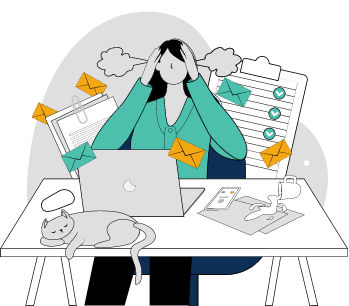Listen to this episode
On this episode
In this episode, Angela Deutschmann joins us to talk about how to experience joy despite the challenges of the healthcare profession. Being in a high-stress job can make you mistake happiness about external things with internal joy.
Angela talks about how to reprogram your unconscious mind and find joy and satisfaction in your everyday life. She also discusses the difference between caring for and carrying out other people’s suffering.
If you want to rekindle your joy within and learn how to become joyful whatever the circumstance is, then listen to this episode.
Show links
covering all these concepts on Joy – and more! Join her for a life-changing day. Click here to RSVP for the event.
Download our Overwhelm SOS Toolkit
Get a copy of the Overwhelm Buster Toolkit
The Happiness Equation by Neil Pasricha
Collections of Meditations by Joe Dispenza
Subscribe to The Joy Studio and visit their Facebook page.
Reach out to Rachel at hello@youarenotafrog.com
Sign up to get your CPD workbook for this episode
Reasons to listen
- Find out the difference between happiness and joy.
- Discover tools that will help you care without carrying.
- Learn how to reprogramme the stories you’ve created in your unconscious mind.
Episode highlights
Angela’s Work around Joy
The Difference Between Happiness and Joy
Finding Joy in Adversity
Caring vs Carrying
Tools to Help You Care without Carrying
Working on the Programming of Your Mind
The Most Common Programmings People Have
Coping with Reprogramming Your Defence Mechanism
The Danger of Blame
The Process of Reprogramming
Creating a New Reality
Where the Analytical Part Comes in
How Long Reprogramming Takes
How to Choose Joy over Suffering
Episode transcript
Angela Deutschmann: There’s no time coming in the future where everything is going to line up according to how you want it to be and then stay there. It doesn’t matter how hard you work or how diligent you are or how much you show up for your patients, or how much you sacrifice for your children, that time is not coming nor does it need to, in fact. As startling and perhaps harsh, a reminder that that is it’s actually very freeing, because you can then begin to settle internally and to cultivate contentment or joy right away without…










